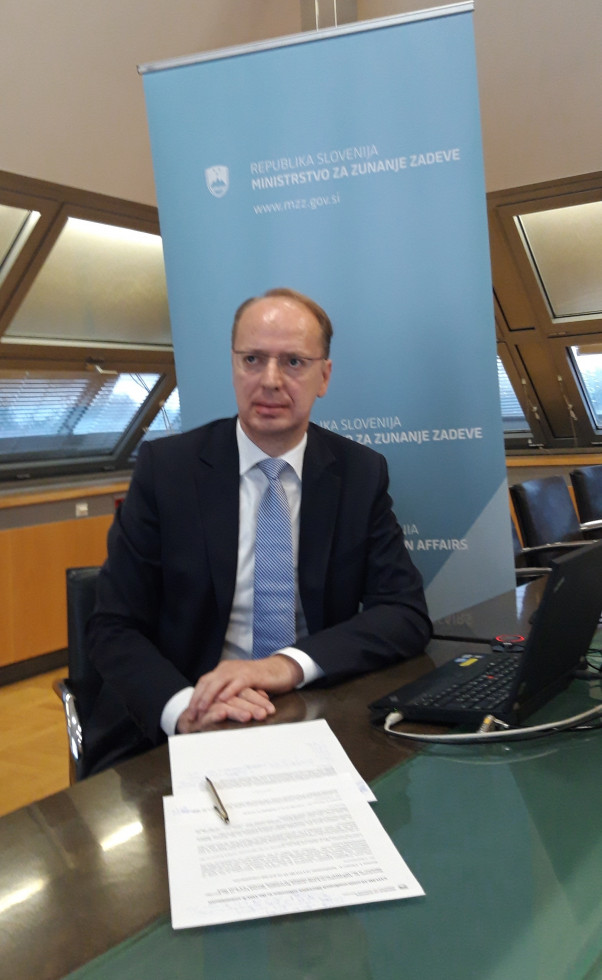Security implications of Covid-19 crisis at heart of OSCE Structured Dialogue
- Ministry of Foreign Affairs
- Permanent Representation to the UN, OSCE and Other International Organisations Vienna
As noted by Ambassador Benedejčič during the session, Slovenian Armed Forces have responded to the crisis according to the Code of Conduct on Politico-Military Aspects of Security, the seminal normative document for the OSCE’s politico-military dimension, by deploying their Role II field hospital and other healthcare capabilities, and providing logistical and transport support, which is a mission under Slovenia’s Defence Act. Slovenian Armed Forces was also provided support abroad, particularly in the Western Balkans, by delivering aid to North Macedonia, Serbia, and Bosnia and Herzegovina, and performing Covid-19 testing among EUFOR personnel in the spirit of OSCE’s co-operative security concept.
Ambassador Benedejčič pointed to three security challenges that emerged in the OSCE area during the health crisis. First, the OSCE Special Monitoring Mission has been put under direct threat by an increased number of military incidents in eastern Ukraine. Second, during the pandemic, a number of OSCE participating States have faced difficulties in procuring the necessary medical equipment, and in this regard Ambassador Benedejčič called for health and sanitary threats to be included in the OSCE’s comprehensive approach to security. And third, the spread of disinformation has become an increasing problem. This includes distorted reporting about NATO battalion battle group in Latvia, which is also composed by members of the Slovenian Armed Forces. Such unacceptable propaganda must be stopped. Ambassador Benedejčič therefore suggested that media monitoring by the OSCE Representative on Freedom of the Media should also cover disinformation.


